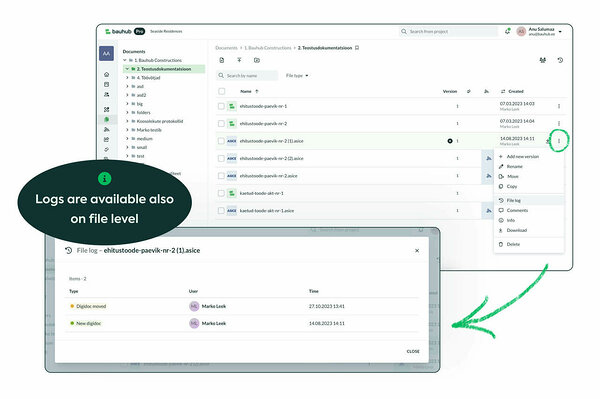Why Do We Need Logs?
Bauhub is essentially a construction project's single source of truth. Such an environment has many good qualities, one of which is the preservation of historical truth, or logs.
The pace of work in the construction sector is fast, and the level of stress is often high, making errors prone to occur. Logs help in restoring accidentally deleted files or recalling in a meeting whether a promised action was indeed completed. As we know, the human brain is not a computer – logs show in black and white who did what and when.
More broadly, logs ensure transparency and reliability. Paradoxically, many people are wary of cloud services, citing a lack of trust as a reason. It's human to fear something that is somewhere far away (in the cloud) and a bit incomprehensible (cloud technology). At the same time, it's also human to overestimate one's ability to remember multiple things simultaneously and to avoid mistakes. This is where digital assistants come in.
The Role of Logs in Risk Management and Dispute Resolution
Logs are invaluable in construction projects as they offer an objective history of the work done. This, in turn, greatly simplifies risk management by providing a clear overview of past events and decisions. In case of disputes, logs serve as reliable evidence, helping to resolve differences based on facts.
Project Management and Logs
Logs are also powerful project management tools. They help monitor what's happening in the project, giving leaders the opportunity to intervene early if something deviates from the plan. This enhances the decision-making process and helps keep the project on the right track.
Employee Responsibility and Error Prevention
The use of logs also increases employee accountability. When every action is trackable and recordable, transparency increases and the likelihood of making errors decreases. Logs allow for real-time monitoring of project activities, reducing the number of inquiries.




